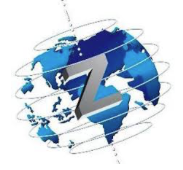Tempo de leitura: 6 minutos
Since the COVID-19 pandemic, companies have continued to benefit from customs waivers which have facilitated the implementation of work-from-home measures by developers and occupants of special economic zones. The Jamaica Special Economic Zone Authority (“JSEZA”) has communicated to SEZ stakeholders that the customs waiver facilitating SEZ work-from-home arrangements will expire on June 30, 2024 and so, unless the waiver is extended, developers and occupants must apply to JSEZA for authorization to continue, or implement, work-from-home arrangements.
Foundational Obligation
SEZs are geographical areas designated under the Special Economic Zones Act (the “SEZ Act”) with special economic regulations that differ from the general trade, tax and investment rules of Jamaica and which have certain fiscal/tax incentives. Therefore, the parameters of an SEZ would be limited to its defined geographic area as contained in the order that established the SEZ.
Goods (and certain services) imported into SEZs by developers or occupants are exempt from the payment of customs duties under the Customs Act. It is important to note that this exemption only extends to goods and services which have been imported into an SEZ and does not appear to extend to any goods and services imported for use outside that specific geographical area. Therefore, in order for the developer or occupant to benefit from the customs duty relief in respect of imported goods and services; such goods and services must be imported into the SEZ.
As a rule of thumb, and as an ongoing obligation of SEZ businesses, even while work-from-home measures are active, business operators should ensure that goods imported into Jamaica for use in their business operations go directly to the brick and mortar operations in the respective SEZs.
If a developer or an occupant imports goods into an area that does not fall within the geographical area of its SEZ, Jamaica Customs Agency (“Customs”) and Tax Administration Jamaica will not be obliged to treat such importation of goods by the occupant or developer as being imported into an SEZ and, on that basis, be free of customs duty and associated taxes. Even if the goods are invoiced to the SEZ entity’s location in an SEZ, if the goods, for example, themselves are not intended to physically enter into the SEZ (but intended to go to another location), it is unlikely that the developer or the occupant would benefit from the available tax relief under the SEZ Act in respect of the imported goods. The developer or the occupant could arguably face a claim from Customs for payment of such duties, penalties and possibly forfeiture under the Customs Act, even if the goods were initially released from Customs without payment of the duty because Customs were unaware that the goods were not intended for use in the SEZ.
Therefore, how could it be possible for approved SEZ businesses to transfer equipment out of a zone into the homes of employees and not run afoul of the law? The answer may be found in the Customs Act.
Temporary Transfers
One may deduce from section 35 of the Customs Act that the provision permits the Commissioner of Customs and Excise (the “Commissioner”) to authorize SEZ businesses to ‘import’ certain goods into the homes of employees from SEZs without paying customs duties on such goods. The catch, though, is that the use of such goods outside of SEZs must be for temporary use only.
In order to protect the public purse, SEZ businesses would be required under the Customs Act to pay over to Customs the amount of the duty on such goods as a deposit or give security therefor as requested by the Commissioner. Once satisfied, the Commissioner will permit the transfer of the goods to be used in the employees’ homes for no longer than three or six months. Consequently, on or before the date on which the Commissioner’s permission expires, the goods should be exported out of the homes of the employees into the SEZs from whence they came.
Failure to do so would likely result in forfeiture of the deposit paid to the Commissioner or the Commissioner electing to draw down on the security she holds in respect of the goods. Consequently, the owners of existing SEZ approved businesses should be considering what impact, if any, will the June 30, 2024, deadline have on their businesses which are currently engaged in work-from-home arrangements pursuant to a customs waiver.
The New Framework
In April 2024, the Jamaica Special Economic Zone Authority (“JSEZA”) shared with SEZ stakeholders information regarding the Government’s objective to facilitate Work From Home arrangements as a permanent fixture of Jamaica’s SEZ regime. This new framework requires the submission of an application to JSEZA: (a) at the time of an application to conduct SEZ businesses, in the case of new entrants to the SEZ regime; or (b) via the SEZ Self Reporting Monitoring Instrument Platform, in the case of existing authorized SEZ businesses.
An applicant may apply for authorization to implement work-from-home arrangements for all its SEZ locations across Jamaica, at a fee of US$8 per employee, provided that the ratio of workers working in the SEZ does not fall below 70% and those working from home does not exceed 30% of an applicant’s total employee complement. Note, however, that prior to applying to JSEZA, it is recommended that each applicant become acquainted with, and assess whether it meets the eligibility criteria by conducting a risk assessment in accordance with the guidelines published by JSEZA.
One may also wish to consider whether legal due diligence needs to be included in such a risk assessment exercise by an applicant, not only to self-assess for eligibility purposes, but to also ensure that, from a compliance perspective, all authorizations required by law are in place to facilitate its work-from-home arrangement and to establish the right standard operating procedures to help the applicant self-regulate its compliance with all applicable laws of Jamaica when utilizing the work-from-home arrangement.
As the SEZ regime continues to develop in Jamaica, it is important for SEZ businesses to remember the foundational obligations and to appreciate the effects of the ongoing obligations created by the SEZ Act and the Customs Act on such developments. Though not expressed in connection to work-from-home arrangements, such obligations arise by implication. When in doubt, it is imperative to seek advice from experienced counsel.
Jezeel Martin is an Associate at Myers, Fletcher & Gordon, and is a member of the firm’s Commercial Department.
Fonte: myersfletcher.com







Os comentários foram encerrados, mas trackbacks e pingbacks estão abertos.